 W
WLeonard Adleman is an American computer scientist. He is one of the creators of the RSA encryption algorithm, for which he received the 2002 Turing Award, often called the Nobel prize of Computer science. He is also known for the creation of the field of DNA computing.
 W
WRoss John Anderson, FRS, FREng is a researcher, author, and industry consultant in security engineering. He is Professor of Security Engineering at the Department of Computer Science and Technology, University of Cambridge where he is part of the University's security group.
 W
WAnnie Antón is a Professor in the School of Interactive Computing at Georgia Tech, within its College of Computing. Antón served as chair of the School of Interactive Computing from 2012 to 2017. From 1998 to 2012, Antón served as a professor of software engineering at North Carolina State University. She is the founder and director of ThePrivacyPlace.org, a research center devoted to issues of privacy protection in information systems. She is known for her research, and for her service in several significant advisory positions in industry and government.
 W
WN. Asokan is a Professor of Computer Science and the David R. Cheriton Chair in Software Systems at the University of Waterloo’s David R. Cheriton School of Computer Science. He is also an Adjunct Professor in the Department of Computer Science at Aalto University.
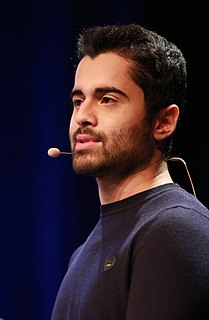 W
WMustafa Al-Bassam is a British computer security researcher and hacker. He co-founded the hacker group LulzSec in 2011, which was responsible for several high profile breaches. He later went on to co-found Chainspace, a company implementing a smart contract platform, which was acquired by Facebook in 2019. He is currently a PhD student in the Information Security Research Group at University College London working on peer-to-peer systems. Forbes listed Al-Bassam as one of the 30 Under 30 entrepreneurs in technology in 2016.
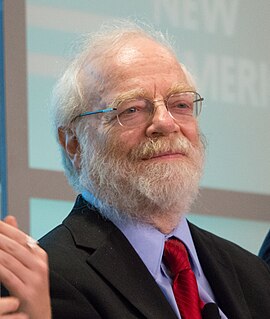 W
WSteven M. Bellovin is a researcher on computer networking and security. He has been a professor in the Computer Science department at Columbia University since 2005. Previously, Bellovin was a Fellow at AT&T Labs Research in Florham Park, New Jersey.
 W
WDaniel Julius Bernstein is an American German mathematician, cryptologist, and computer scientist. He is visiting professor at CASA at Ruhr University Bochum, as well as a Research Professor of Computer Science at the University of Illinois at Chicago. Before this, he was a professor in the department of mathematics and computer science at the Eindhoven University of Technology
 W
WRaheem Beyah is an American computer engineer, researcher, and educator. As of January 15, 2021 he is the Dean of the College of Engineering and Southern Company Chair at the Georgia Institute of Technology. Prior to becoming the Dean, he was the vice president for Interdisciplinary Research and the Motorola Foundation Professor and the executive director of Georgia Tech's online masters in cyber security program. Beyah is also the co-founder and chair of industrial security company Fortiphyd Logic, Inc.
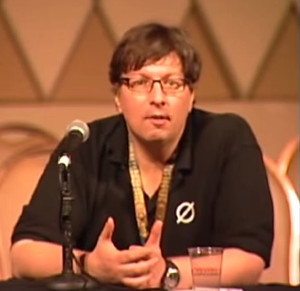 W
WMatt Blaze is a researcher in the areas of secure systems, cryptography, and trust management. He is currently the McDevitt Chair of Computer Science and Law at Georgetown University, and is on the board of directors of the Tor Project.
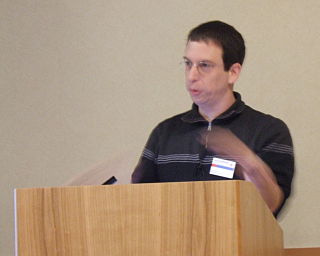 W
WDan Boneh is an Israeli-American professor in applied cryptography and computer security at Stanford University.
 W
WDavid Brumley is a Professor at Carnegie Mellon University. He is a well-known researcher in software security, network security, and applied cryptography. Prof. Brumley also worked for 5 years as a Computer Security Officer for Stanford University.
 W
WElie Bursztein is a French computer scientist and software engineer. He currently leads Google’s Security and Anti-Abuse Research Team.
 W
WGeorge Danezis, FBCS is a computer scientist and Professor of Security and Privacy Engineering at the Department of Computer Science, University College London where he is part of the Information Security Research Group, and a fellow at the Alan Turing Institute. He co-founded Chainspace, a sharded smart contract platform, and was Head of Research before it was acquired by Facebook. He currently works part-time as a Professor at University College London and as a blockchain researcher at Facebook.
 W
WDorothy Elizabeth Denning, born August 12, 1945, is a US-American information security researcher known for lattice-based access control (LBAC), intrusion detection systems (IDS), and other cyber security innovations. She published four books and over 200 articles. Inducted into the National Cyber Security Hall of Fame in 2012, she is now Emeritus Distinguished Professor of Defense Analysis, Naval Postgraduate School.
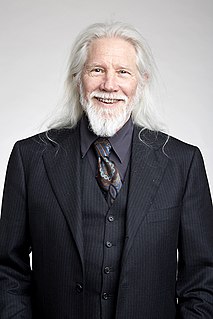 W
WBailey Whitfield 'Whit' Diffie, ForMemRS, is an American cryptographer and one of the pioneers of public-key cryptography along with Martin Hellman and Ralph Merkle. Diffie and Hellman's 1976 paper New Directions in Cryptography introduced a radically new method of distributing cryptographic keys, that helped solve key distribution—a fundamental problem in cryptography. Their technique became known as Diffie–Hellman key exchange. The article stimulated the almost immediate public development of a new class of encryption algorithms, the asymmetric key algorithms.
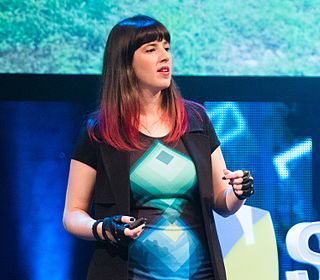 W
WKeren Elazari is an Israeli-born cyber security analyst and senior researcher at the Tel Aviv University Interdisciplinary Cyber Research Center with an emphasis on hackers and technology and their social implications. Her research interests include issues of hacktivism, information and cyber punk.
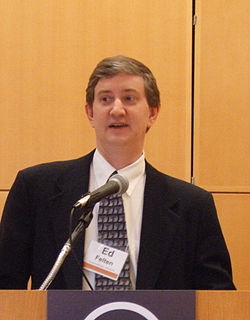 W
WEdward William Felten is the Robert E. Kahn Professor of Computer Science and Public Affairs at Princeton University, where he was also the Director of the Center for Information Technology Policy from 2007 to 2015 and from 2017 to 2019. On November 4, 2010, he was named Chief Technologist for the Federal Trade Commission, a position he officially assumed January 3, 2011. On May 11, 2015, he was named the Deputy U.S. Chief Technology Officer.
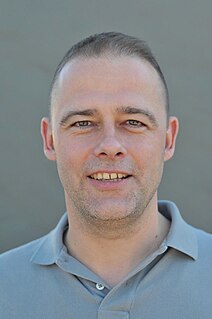 W
WMichael Franz is an American computer scientist best known for his pioneering work on just-in-time compilation and optimisation and on artificial software diversity. He is a Chancellor's Professor of Computer Science in the Donald Bren School of Information and Computer Sciences at the University of California, Irvine (UCI), a Professor of Electrical Engineering and Computer Science in the Henry Samueli School of Engineering at UCI, and Director of UCI's Secure Systems and Software Laboratory.
 W
WJ. Alex Halderman is professor of Computer Science and Engineering at the University of Michigan, where he is also director of the Center for Computer Security & Society. Halderman's research focuses on computer security and privacy, with an emphasis on problems that broadly impact society and public policy.
 W
WBernhard M. Hämmerli is a Swiss computer scientist in the fields of communications, networks and information security, specifically critical infrastructure protection in the European Union. He is teaching internationally, as a professor at both the Lucerne University of Applied Sciences and Norwegian University of Science and Technology. He was president of the Swiss Informatics Society from 2009 to 2014 and chair of the platform ICT Security of the Swiss Academy of Engineering Science from 2012. He has directed a new academic course Information & Cyber Security in Lucerne from 2018.
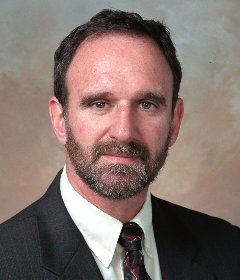 W
WMartin Edward Hellman is an American cryptologist, best known for his invention of public key cryptography in cooperation with Whitfield Diffie and Ralph Merkle. Hellman is a longtime contributor to the computer privacy debate, and has applied risk analysis to a potential failure of nuclear deterrence.
 W
WRalph C. Merkle is a computer scientist. He is one of the inventors of public-key cryptography, the inventor of cryptographic hashing, and more recently a researcher and speaker on cryonics.
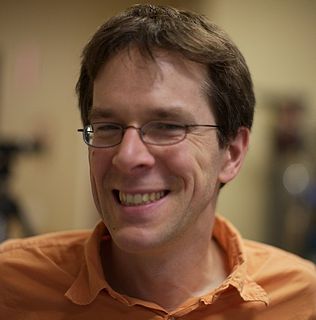 W
WRobert Tappan Morris is an American computer scientist and entrepreneur. He is best known for creating the Morris worm in 1988, considered the first computer worm on the Internet.
 W
WRadia Joy Perlman is an American computer programmer and network engineer. She is most famous for her invention of the spanning-tree protocol (STP), which is fundamental to the operation of network bridges, while working for Digital Equipment Corporation. She also made large contributions to many other areas of network design and standardization, such as link-state routing protocols.
 W
WRonald Linn Rivest is a cryptographer and an Institute Professor at MIT. He is a member of MIT's Department of Electrical Engineering and Computer Science (EECS) and a member of MIT's Computer Science and Artificial Intelligence Laboratory (CSAIL). His work has spanned the fields of algorithms and combinatorics, cryptography, machine learning, and election integrity.
 W
WAviel David "Avi" Rubin is an expert in systems and networking security. He is a graduate of the University of Michigan and Professor of Computer Science at Johns Hopkins University, Technical Director of the Information Security Institute at Johns Hopkins, Director of ACCURATE, and President and co-founder of Independent Security Evaluators. In 2002, he was elected to the Board of Directors of the USENIX Association for a two-year term.
 W
WEugene Howard Spafford, nicknamed Spaf, is an American professor of computer science at Purdue University and a leading computer security expert.